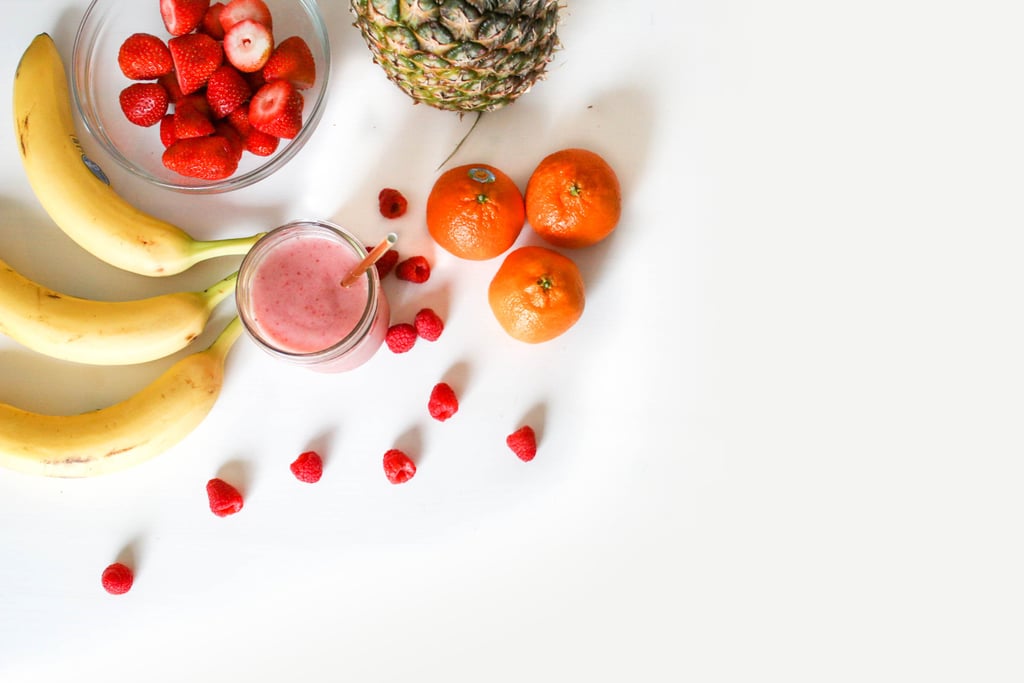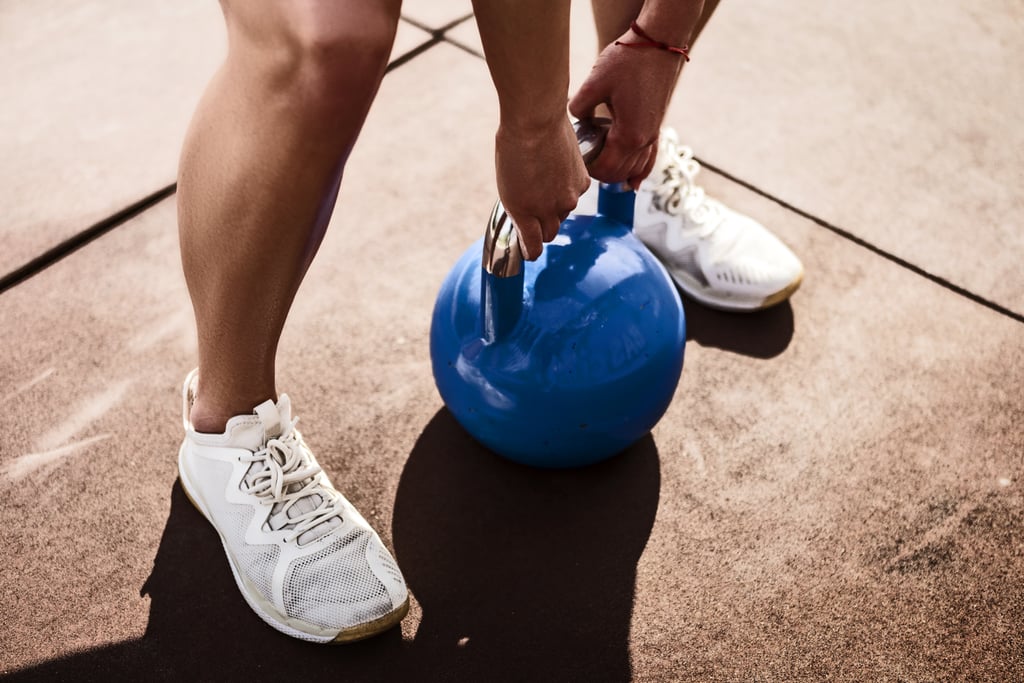Weightlifting is a proven form of exercise that can help you burn fat and build lean muscle mass [1], but it's just one part of the equation. You've also got to fuel your body with foods that will give you energy and help your system build muscle.
A common nutrition misconception is that drastically reducing your carbohydrate intake will help you lose weight. While a slight decrease in carbs can help some people lose weight, especially if they're eating too many carbs to begin with, it's not ideal if you're trying to build muscle.
To find out how many carbs you should be eating each day to lose fat and build muscle, POPSUGAR spoke to Nikki Jupe [2], MS, RD, LD, CSSD, senior sports dietitian at the University of Oregon.

What Are Carbohydrates?

Carbohydrates are one of three macronutrients [4] — protein and fat are the other two — and your body's first source of energy. "This is the nutrient that powers you through your workouts," Nikki told POPSUGAR. "Our body pulls glucose from our muscles and liver to provide it with the energy it needs to get you through the workout," she explained.
Carbohydrates are commonly found in the forms of sugars, fibres, and starches. The best sources of carbs are in unprocessed and minimally processed whole grains, vegetables, fruits, and beans, according to the Harvard School of Public Health [5].
How Many Carbs Should I Eat to Lose Fat and Build Muscle?

To determine how many carbs you should consume each day, you first have to calculate how many calories you need in a day [6]. There are different prediction equations that professionals use, and Nikki recommended the Harris-Benedict equation to determine daily caloric intake. If maths isn't your forte, you can also use an online Harris-Benedict equation calculator [7].
- Female: 655.1 + 9.6(weight in kilograms) + 1.9(height in centimeters) - 4.7(age in years) x activity factor
- Male: 66.5 + 13.8(weight in kilograms) + 5(height in centimeters) - 6.8(age in years) x activity factor
For activity factor [8], choose one of the following:
- Sedentary/little to no exercise: 1.2
- Lightly active (light exercise or sports one to three days a week): 1.375
- Moderately active (moderate exercise or sports six to seven days a week): 1.55
- Very active (intense exercise every day or exercising two times a day): 1.725
For example, a 30-year-old woman who is 5'4" (162.5 cm) and weighs 145 pounds (65.9 kg) who is lightly active would use this calculation:
655.1 + 9.6(65.9) + 1.9(162.5) - 4.7(30) x 1.375 = 2,001 calories (this number was rounded)
Because the goal is to lose weight/fat, Nikki said to reduce the original figure by 500 calories. To lose fat and build muscle, this woman should consume 1,501 calories a day. This number will help you determine how many calories you should consume from each macronutrient.
According to Nikki, 50 percent of your macronutrient profile should come from carbohydrates like complex grains and starchy vegetables [9] such as lentils and potatoes. Using the example above, this woman would need 188 grams of carbs a day, or 47 grams per meal: breakfast, lunch, dinner, and a post-workout drink.
To lose fat and build muscle, 25 percent of your daily caloric intake should come from lean protein sources. This is 94 grams of protein a day, or 23.5 grams per meal (breakfast, lunch, dinner, and a post-workout drink). The final 25 percent of your daily caloric intake should come from fats, Nikki said. Based on the example, this woman would need 42 grams of fat a day or 10.5 grams per meal.
Because your macronutrient profile will change based on your goals, Nikki recommends reassessing your goals every couple of months to align your energy needs (aka caloric needs) to your goals. "This takes time as well so I encourage people to find their nearest registered dietitian for help," she said.
Nutrition Tips to Consider to Lose Fat and Build Muscle

In order to build muscle and lose fat, you'll need to make sure you have an exercise regimen that will help you achieve those goals. Here's a four-week workout plan [10] to get you started.
To help you stay on track with your nutrition, Nikki said to start paying attention to your portion sizes. "It's easy to overeat, even the right foods, so stick to the basic portion sizes based on your hand [11]. You'll also want to ensure your diet is balanced. Instead of focusing on one nutrient, like protein, Nikki said you need a balance of fats, proteins, and carbohydrates.
You've also got to make sure that you're eating. Yes, we're talking to everyone who is preoccupied with meeting deadlines and skips meals. "Timing throughout your day helps keep the metabolism regulated [12]; skipping meals will slow the metabolism and thus cause weight gain," Nikki explained.
Your metabolism is what allows your body to conduct daily functions, from mundane tasks like sneezing to more complex processes such as brain functions. According to Nikki, the more efficient your metabolism is at a resting state, the better your body will utilise that energy. An efficient metabolism combined with consistent exercise will promote weight loss, she explained.
When you skip meals, your body doesn't receive the energy it needs to function properly, improve your metabolism, and help you lose fat. "If you do not feed the body energy, then it will start to conserve what you do give it and store it as fat," Nikki said. The minimum amount of calories you'll need to eat in a day will depend on your resting metabolic rate [13], the amount of calories your body needs to perform basic functions before physical activity.
In order to find out that number, you'll need to work with a specialist at specialised clinics or a hospital. From there, you'll be able to determine your calorie needs based on your activity level and goals with their help or by using the Harris-Benedict equation.
Finally, plan your meals at the beginning of each week. "Write down four to five main menu items and have it ready in the fridge to grab and cook," she said.
Losing fat and building muscle won't happen overnight, but a good nutritional plan and exercise program will have you on your way to accomplishing your fitness goals. We highly recommend speaking with fitness and nutrition experts for a more individualized program.